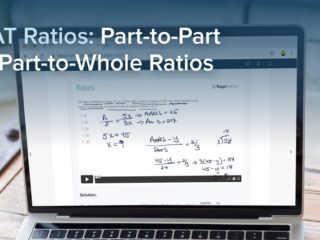Last Updated on May 9, 2023
GMAT OFFICIAL GUIDE DS
Solution:
We are given that x and y are integers and must determine whether x > y.
Statement One Alone:
x + y > 0
Knowing that the sum of x and y is greater than zero is not enough information to determine whether x > y. For example, if x = 2 and y = 1, then x > y. However, if x = 1 and y = 2, then x < y. Statement one is not sufficient to answer the question. We can eliminate answer choices A and D.
Statement Two Alone:
y^x < 0
Using the information in statement two we know that y^x must be negative. The only way for that to be possible is if the base y is negative and the exponent x is odd. However, knowing that y is negative and x is odd is not enough information to determine whether x > y. Let’s use a few different examples.
x = 3
y = -2
(-2)^3 = -8
In the above scenario, x is greater than y.
x = -3
y = -2
(-2)^-3 = (-1/2)^3 = -1/8
In the above scenario, x is NOT greater than y.
Statements One and Two Together:
From statements one and two we know that x + y > 0 and that y is negative and x is odd.
When we use the above information together we see that we can no longer use both scenarios from statement two. In one scenario, x = -3 and y = -2; however, this does not fulfill statement one in which x + y > 0. Thus we can determine that the only scenario that works is similar to when x = 3 and y = -2. In other words, the only scenario that will work with both statements is when x is an odd positive integer and y is a negative integer. Thus, statements one and two together are sufficient to answer the question.
Answer: C



